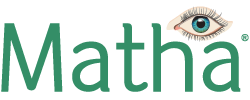Stroke Rehabilitation
Ayurvedic Treatment
The long-term disabilities following recovery from stroke are called post-stroke problems. They may develop either directly as an after-effect of stroke, or indirectly by the neurological defects, reduced physical activity, changed lifestyle following stroke etc.
Signs and Symptoms
They can be grouped as-
- Problems associated with movement and functional activity after stroke– muscle weakness, muscle contractions, spastic muscles, abnormal walking styles, balancing issues, difficulty to swallow/ grasping/ stand etc.
- Bladder and bowel problemsIssues with sensation and perception– difficulties with vision/ hearing/ taste/ tactile sensation etc, disorders with thermal sensation etc.
- Different types of pain after stroke– hemiplegic shoulder pain, central post-stroke pain etc.
- Problems with cognition– executive dysfunction, impaired memory and attention, dyspraxia.
- Emotional disturbances– anxiety, depression etc.
- Miscellaneous– problems with language and speech, frequent falls, seizure, fatigue, osteoporosis etc.
- Associated diseases like diabetes, hypertension, cardiac disorders, COPD, arthritis etc.
Ayurvedic Analysis
Pakshaghata (hemiplegia) and sarvangavata (paralysis) are grouped under vatavyadhi (diseases due to vitiated vata) in Ayurveda. As the nadi (nerves and blood vessels) are involved in the disease manifestation, the person may have certain disabilities even after the recovery, and are depended on the severity of the disease. Commonly affected dhatu are mamsa (muscle tissue), asthi (bones) and majja (bone marrow, nerves, brain areas etc). Early treatment can reduce the disabilities to some extent.
Causative Factors (Ayurveda)
Aggravation of vata is caused by increased physical activity, speaking too much/ loudly, bearing heavy objects over the head or shoulders, travelling too much, over exposure to cold/ wind etc, trauma, stress etc. It causes irreversible damage to mamsa, asthi and majja dhatu resulting in difficulties with memory, intellect, speech, balance, muscle power and control, diseases of bones etc.
Possible Complications
These problems cause major disabilities and poor quality of life along with psychological distress (eg: depression).
Other systemic diseases and precautions to be taken
Consider co-morbidities like hypertension, diabetes, cardiovascular disorders etc before planning treatment.
Management
Symptomatic care is preferred if the disabilities have been developed a while ago. Treatment is focused on pacifying vata and improve muscle strength. They include rukshana (removal of ama if present), snehana (internal/ external/ both), swedana (sudation therapy- eg: steam bath, kizhi, pizhichil, shirovasti etc), nasya (nasal instillation of medicine), virechana (purgation), vasthi (enema with suitable drugs), lepana (external application of pasted medicine over the site of pain) etc along with appropriate internal medication and supportive therapies like speech therapy, physiotherapy etc.
Diet
The diet should contain whole grains, green vegetables, fruits, leafy vegetables, nuts, milk, small fishes etc. Avoid the consumption of very cold food, skipping of meals, eating too little, curd, peas etc that aggravate vata.
Exercise
Though the person feels difficulty to balance the body and problems with standing, sitting etc, try to indulge in mild exercises (eg: walking with support) that help to improve muscle movements, blood circulation and spatial orientation. Physiotherapy, yoga and pranayama can be incorporated as a supportive therapy.
Preventive Aspects
The stroke patient should stick on to a healthy diet as prescribed by the physician, exercise regularly, ensure adequate sleep, avoid stress/ anger/ anxiety, quit bad habits and follow preventive regimens like application of suitable oil over body and scalp before bath, nasal instillation of medicine etc.
Importance of Diet
Choose the food items that won’t further aggravate vata as vata is the deranged dosha in pakshaghata.
Lifestyle
The person should avoid sedentary habit as it increases muscle stiffness and spasm. Indulge in regular exercise. Ensure adequate sleep. Take healthy food as per the physician’s instructions. Maintain personal hygiene. Do regular health check-ups. Avoid mental stress. Reduce the intake of coffee/tea etc and quit smoking and alcoholism. Use appropriate supportive measures (eg: walking stick, hearing aid etc) to improve the quality of life.
How to get ayurvedic treatment from Matha
1
Contact us
Tell us your health concern via contact form, email, or phone
2
Medical Questionnaire
Fill up the medical questionnaire that we send to you.
3
Consultation
Consult our Chief Physician at the time slot we schedule for you.
Matha Consultation Request Form
In case of a medical emergency, DO NOT wait for the above process. You can inform your situation at our helpdesk ([email protected] / 9847195533)
Our Hospitals
Matha has three hospitals in Trivandrum. You can opt for any one of our hospitals, rooms will be provided based on availability.
Know more about the treatment costs of Matha Ayurveda Hospitals
Our Hospitals
Matha Ayurveda Eye Hospital & Panchakarma Centre
Near Civil Station, Jayaprakash Ln, Kudappanakunnu, Thiruvananthapuram, Kerala 695043
Reception: 04712731352
Matha Ayurveda Eye Hospital & Panchakarma Centre
Eye Hospital Road (Moongode - Meppukada Road), Moongode P O Near, Thachottukavu, Kerala 695573
Reception: 9562997799
Contact
OP Timings
9.00 am - 5.00 pm
Appointment only
Important Links



